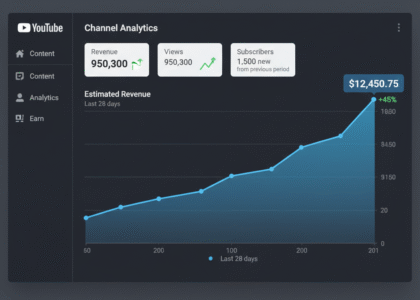Index funds have become the backbone of many investment portfolios, celebrated for their simplicity, low fees, and consistent performance. But as market dynamics shift, investors are asking a critical question: Are index funds safe during times of market volatility? Let’s unpack the debate around index funds, explore their risks and rewards, and determine how to navigate the current market landscape with confidence.
What Makes Index Funds Popular?
1. The Basics of Index Funds

Index funds are mutual funds or ETFs that aim to replicate the performance of a specific market index, such as the S&P 500 or the Nasdaq 100. They offer broad market exposure without the need to pick individual stocks.
- Key Benefits of Index Funds:
- Passive management leads to lower costs.
- Diversification reduces individual stock risks.
- Historically solid long-term returns.
Internal Link: Want to learn more about the fundamentals? Check out GetCashVibe’s beginner’s guide to investing in index funds.
2. The Rise of Passive Investing
Index funds have surged in popularity due to their ability to outperform many actively managed funds over the long term. With millions of investors embracing the “buy and hold” strategy, the assets in index funds have grown exponentially.
The Risks of Index Funds During Market Volatility
1. Vulnerability to Market Downturns
Index funds mirror the market, meaning they rise and fall in tandem with it. During a downturn, an index fund will decline just as much as the index it tracks.
- What This Means for You: Index funds won’t shield you from market crashes or corrections, as they lack active management to navigate volatility.
2. Overconcentration in Large Companies

Many indices, like the S&P 500, are market-cap weighted. This means larger companies like Apple, Microsoft, and Amazon dominate the index’s performance.
- The Risk: If these giants experience a significant drop, the entire fund’s value can take a hit.
3. Herd Mentality and Bubble Concerns
The passive nature of index funds means money flows indiscriminately into all the stocks in the index, regardless of their underlying value. Critics argue this could lead to inflated valuations, increasing the risk of a market bubble.
External Link: Learn more about the potential downsides of passive investing at Morningstar.
Are Index Funds Safe? Strategies for Navigating Risks
1. Diversify Your Portfolio
Relying solely on index funds can expose you to market-wide risks. To mitigate this, consider adding other asset classes to your portfolio, such as:
- Bonds for stability.
- Real estate for diversification.
- International funds to capture growth outside the U.S.
2. Use Dollar-Cost Averaging (DCA)

Investing a fixed amount regularly can help you avoid the pitfalls of market timing. By buying shares during both highs and lows, you reduce the impact of volatility.
3. Focus on Your Long-Term Goals
Index funds are designed for the long haul. Instead of panicking during market dips, trust in their historical ability to recover and grow over time.
- Pro Tip: Revisit your financial goals annually to ensure your portfolio aligns with your timeline and risk tolerance.
Internal Link: Looking for long-term strategies? Explore GetCashVibe’s guide to building a diversified retirement portfolio.
Why Index Funds Remain a Smart Choice
1. Proven Long-Term Returns

Despite short-term volatility, index funds have consistently delivered strong returns over decades. Their performance reflects the market’s overall upward trajectory.
2. Low Fees Equal Higher Gains
With expense ratios as low as 0.03% for some funds, index funds keep more of your money invested and compounding over time.
3. Simplicity for Every Investor
Index funds eliminate the complexity of stock picking and active management, making them an excellent choice for beginners and seasoned investors alike.
Actionable Tips to Maximize Safety with Index Funds
- Choose Broad-Based Funds: Opt for total market funds for greater diversification.
- Rebalance Your Portfolio: Regularly adjust your investments to maintain your desired asset allocation.
- Invest in Low-Cost Options: Compare expense ratios before committing to a fund.
- Stay Informed: Keep an eye on market trends but avoid making impulsive decisions based on short-term movements.
External Resource: For tips on rebalancing, check out The Motley Fool.
Conclusion: Are Index Funds Safe?
The question of safety in index funds boils down to understanding their risks and aligning them with your financial goals. While they are not immune to market volatility, their simplicity, low costs, and long-term growth potential make them a valuable tool for most investors. By diversifying your portfolio and staying committed to your strategy, you can confidently weather the ups and downs of the market.
Discover more tips on achieving financial freedom! Explore GetCashVibe today and take control of your finances!






